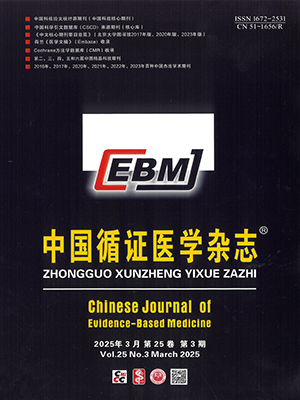| 1. |
McDonough RC, Ryan ST. Diagnosis and management of lower urinary tract dysfunction. Surg Clin North Am, 2016, 96(3): 441-452.
|
| 2. |
Manack A, Motsko SP, Haag-Molkenteller C, et al. Epidemiology and healthcare utilization of neurogenic bladder patients in a US claims database. Neurourol Urodyn, 2011, 30(3): 395-401.
|
| 3. |
Roe B. Do we need to clamp catheters. Nursing times, 1990, 86(43): 66-67.
|
| 4. |
中国康复医学会康复护理专业委员会. 神经源性膀胱护理实践指南(2017年版). 护理学杂志, 2017, 32(24): 1-7.
|
| 5. |
Cameron AP, Wallner LP, Tate DG, et al. Bladder management after spinal cord injury in the United States 1972 to 2005. J Urol, 2010, 184(1): 213-217.
|
| 6. |
Zhengyong Y, Changxiao H, Shibing Y, et al. Randomized controlled trial on the efficacy of bladder training before removing the indwelling urinary catheter in patients with acute urinary retention associated with benign prostatic hyperplasia. Scand J Urol, 2014, 48(4): 400-404.
|
| 7. |
Ross J. Some observations on the indwelling catheter. Practitioner, 1936, 136: 638-644.
|
| 8. |
胡晓昀, 李秀萍, 方海云, 等. 术后短期留置尿管患者拔管前夹闭尿管必要性的研究. 中华护理杂志, 2013, 48(3): 269-270.
|
| 9. |
Crowe H, Clift R, Duggan G, et al. A randomized study of the effect of midnight removal of urinary catheters. Urol Nurs, 1994, 14(1): 18-20.
|
| 10. |
Wilde MH, McDonald MV, Brasch J, et al. Long-term urinary catheter users self-care practices and problems. J Clin Nurs, 2013, 22(3-4): 356-367.
|
| 11. |
王舒蓉, 杨海玲, 姜素兰. 夹管训练结合膀胱功能康复训练对老年脑出血神经源性膀胱患者排尿功能及生活质量的影响. 老年医学与保健, 2021, 27(5): 969-972,1028.
|
| 12. |
Fanfani F, Costantini B, Mascilini F, et al. Early postoperative bladder training in patients submitted to radical hysterectomy: is it still necessary. A randomized trial. Arch Gynecol Obstet, 2015, 291(4): 883-888.
|
| 13. |
Liu YS, Wei S, Elliott M. The effects of a catheter clamping protocol on bladder function in neurosurgical patients: a controlled trial. Int J Nurs Pract, 2015, 21(1): 29-36.
|
| 14. |
Guzmán S, Israel E, Puente R, et al. Handling of Foley catheter regarding urinary retention syndrome following vaginal surgery. Rev Chil Obstet Ginecol, 1994, 59(4): 280-283.
|
| 15. |
Oberst MT, Graham D, Geller NL, et al. Catheter management programs and postoperative urinary dysfunction. Res Nurs Health, 1981, 4(1): 175-181.
|
| 16. |
Moon HJ, Chun MH, Lee SJ, et al. The usefulness of bladder reconditioning before indwelling urethral catheter removal from stroke patients. Am J Phys Med Rehabil, 2012, 91(8): 681-688.
|
| 17. |
Wahyu H. The influence of bladder training initiation on residual urine in the stroke patients with urine catheter. Nurs Med J Nurs, 2011, 2011: 255-264.
|
| 18. |
NHSN Training, CDC. Patient safety component (PSC) manual. Urinary tract infection [catheter-associated urinary tract infection (CAUTI) and non-catheter-associated urinary tract infection (UTI) and other urinary system infection (USI)] events. Chapter 7: device-associated module. Atlanta: CDC, 2022: 1-13.
|
| 19. |
Gould CV, Umscheid CA, Agarwal RK, et al. Guideline for prevention of catheter-associated urinary tract infections 2009. Infect Control Hosp Epidemiol, 2010, 31(4): 319-326.
|
| 20. |
Fernandez RS, Griffiths RD. Clamping short-term indwelling catheters: a systematic review of the evidence. J Wound Ostomy Continence Nurs, 2005, 32(5): 329-336.
|
| 21. |
Ellahi A, Stewart F, Kidd EA, et al. Strategies for the removal of short-term indwelling urethral catheters in adults. Cochrane Database Syst Rev, 2021, (6): CD004011.
|
| 22. |
Fillingham S, Douglas J. Urological nursing (3rd ed). London: Bailliere Tindall, 2005: 1.
|
| 23. |
European Association of Urology Nurses. Catheterisation: indwelling catheters in adults-urethral and suprapubic 2012.
|
| 24. |
European Association of Urology. Guidelines on urological infections 2015.
|




